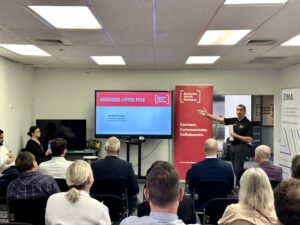Wage subsidies. Low-interest loans. Tax refunds. Payments for people who are suddenly unemployed. Support dealing with creditors or with commercial landlords or business tenants.
Find which you can get with this handy round-up of government support for businesses, including sole traders and self-employed people.
Low-interest loans from government
Small Business Cashflow (Loan) Scheme
What it is: Low-interest one-off loan of up to $10,000 + $1,800 for each full-time equivalent employee.
- 3% interest rate
- repay over 5 years
- no payments in first 2 years — but you can choose to make payments
- payments handled by Inland Revenue.
No interest charged if you pay back the loan within a year.
Who can get it: Smaller businesses struggling financially due to the COVID-19 pandemic, including:
- businesses with up 50 employees
- sole traders
- self-employed people.
As with any loan, you must also be able to show you can pay it back. Your business needs to be viable, with a plan to stay that way.
Deadline to apply: 31 December 2020
How to apply: On the Inland Revenue website, using your myIR account.
Small Business (Loan) Cashflow Scheme (external link) — Inland Revenue
Also consider: Borrowing money or getting credit from a bank taking part in the Business Finance Guarantee scheme for small and medium-size businesses.
Business Finance Guarantee scheme (external link) — Treasury
Tax refunds
What it is: A way to pay less tax if your business made a profit in the 2019/20 tax year, but expects to lose money due to the impact of the COVID-19 pandemic. Inland Revenue (IR) will carry the expected loss back to the 2019/20 tax year, reducing your tax to pay on profits already made.
Who can get it: Businesses that:
- ended the 2019 tax year in profit (usually 1 April 2019 to 31 March 2020)
- expect to make a loss in the 2020 tax year or 2021 tax year due to the impact of the COVID-19 pandemic.
Deadline to apply: It’s a good idea to tell IR you plan to do this as soon as possible. If you have already paid provisional tax for 2020, you may be eligible for a refund.
How to apply: You must tell IR you plan to use the loss carry-back scheme. It’s easiest to do this online via myIR, using the “I want to” section.
For more detail on how to use the carry-back scheme, see the IR website:
Temporary loss carry-back scheme (external link) — Inland Revenue
Also consider: Inland Revenue’s cash flow and tax relief measures to help businesses as they recover.
COVID-19 Businesses and organisations (external link) — Inland Revenue
Wage subsidy extension applications closing 1 September 2020
What it is: Payments to help cover wages or salaries, open for applications from 10 June to 1 September 2020. It’s an extension of original wage subsidy scheme, announced as New Zealand went into Level 4 lockdown.
Who can get it: Businesses and self-employed people still financially impacted by the COVID-19 pandemic. You must have a minimum 40% decline in revenue over a 30-day period within 40 days before you apply for the extension.
All business types that meet the financial criteria are eligible, including:
- businesses with employees
- sole traders
- contractors
- self-employed people
- registered charities.
Who can get it (external link) — Work and Income
Deadline to apply: 11.59pm on 1 September 2020
How to apply: Use the online form on the Work and Income website. You’ll need your NZBN, the IRD numbers of your business and any employees, plus other details.
- If you received the original 12-week subsidy for your worker(s) or yourself, you need to apply again for the extension.
- If you haven’t applied for the wage subsidy before, you can apply for the extension.
Apply for the wage subsidy extension (external link) — Work and Income
Also consider: Leave support payments if an employee cannot work due to COVID-19 public health guidance.
COVID-19 Leave Support Scheme (external link) — Work and Income
Payments for employers with first or second year apprentices to help cover wages. For each eligible apprentice, employers can claim $500 to $1,000 a month from August 2020 to April 2022.
Apprenticeship Boost Initiative (external link) — Work and Income
Income relief payments
What it is: Up to 12 weeks of payments to help with living costs after sudden job loss during the COVID-19 pandemic. If eligible, you will get $250 or $490 a week depending on the number of hours you previously worked.
Who can get it: You may be eligible if you lose your job between 1 March and 30 October 2020. This includes:
- employees
- contractors
- self-employed people.
Before losing your job, you must have been employed for at least 12 weeks and have worked an average of at least 15 hours a week.
Deadline to apply: 13 November 2020
How to apply: Check full eligibility criteria on the Work and Income website.
Income relief payments (external link) — Work and Income
Help with commercial lease disputes
What is it: Temporary law changes and subsidies for arbitration/mediation to help commercial tenants and landlords share the financial impact of COVID-19.
Law changes backdated to 1 April 2020 include:
- More time for commercial tenants to catch up on overdue rent.
- Longer notice period for cancelling a lease because of overdue rent, up from 10 working days to 30 working days.
- More time for mortgage borrowers, including landlords, to catch up on overdue mortgage payments.
Details of the subsidised arbitration/mediation are still being finalised. The service is likely to be available from late September.
Who it’s for: The law changes aim to help:
- commercial tenants temporarily having difficulty paying rent and other bills
- their landlords who, in turn, find it hard to make mortgage payments.
Next steps: Landlords and tenants should work together to agree a solution. If you cannot agree, it’s a good idea to get legal advice. Mediation or arbitration is another option — try the New Zealand Dispute Resolution Centre (NZDRC). You can register for subsidised arbitration on the NZDRC website.
Guidance for commercial property settlements (external link) — Ministry of Justice
COVID-19 lease disputes (external link) — New Zealand Dispute Resolution Centre
Business debt hibernation
What it is: Support to place existing debts on hold for up to seven months. This involves agreeing a new repayment plan with your creditors, eg reduced payments or delaying payments.
You also get government protection against creditors taking insolvency action against you for:
- 1 month while you agree a new repayment plan
- 6 months after agreeing new repayments.
You must still repay your debts in full.
Who can get it: Businesses and other organisations with both:
- existing debt
- reduced income due to the COVID-19 pandemic.
Eligible business types include:
- companies
- partnerships
- trusts
- societies.
Deadline to apply: No official deadline. But it’s important to notify the Companies Office and start talking to your creditors as soon as possible.
How to apply: Fill out the relevant form and send it to the Companies Office. Begin negotiating with your creditors — at least half must agree.
For more information, links to forms, and an online tool to check if you are eligible, check out our page on debt hibernation:
Also consider: Support available to businesses at risk of insolvency due to COVID-19, or facing difficulties complying with their legal obligations.
Law changes to help businesses (external link) — Companies Office
SOURCE: BUSINESS.GOVT.NZ
CoronavirusCOVIDCOVID-19LoansSmall BusinessSMESTax refundsWage subsidies




